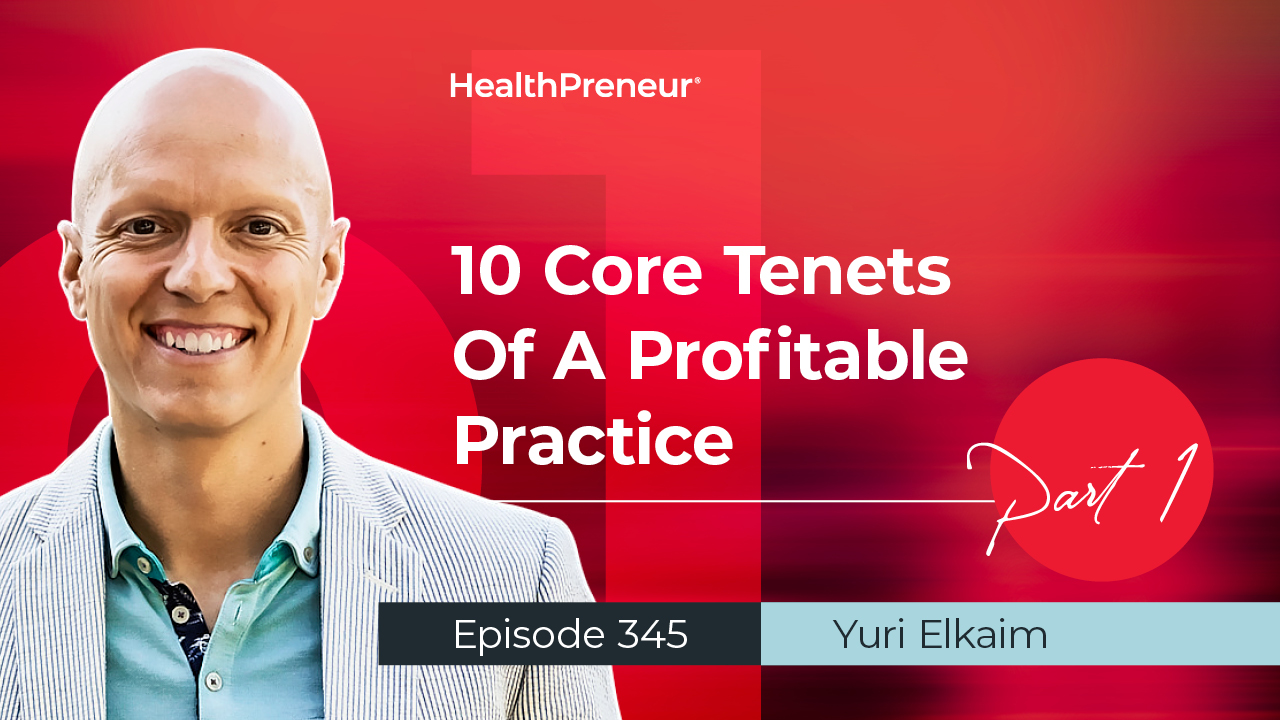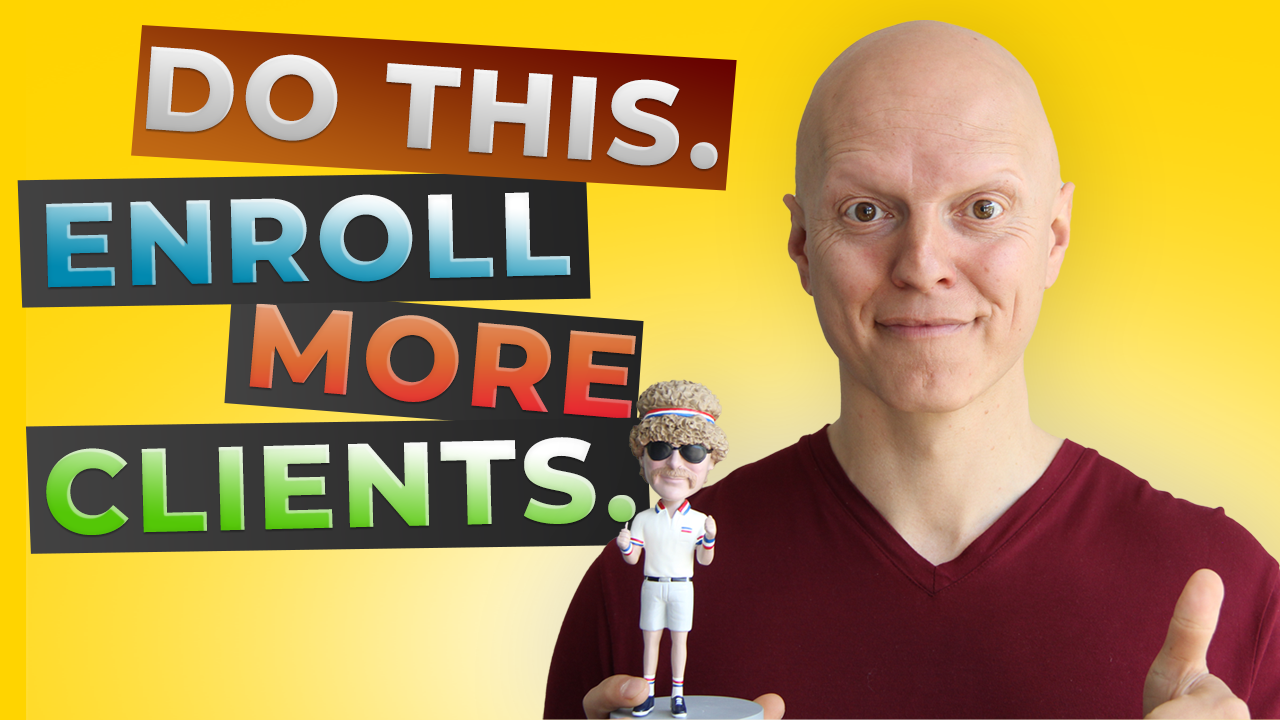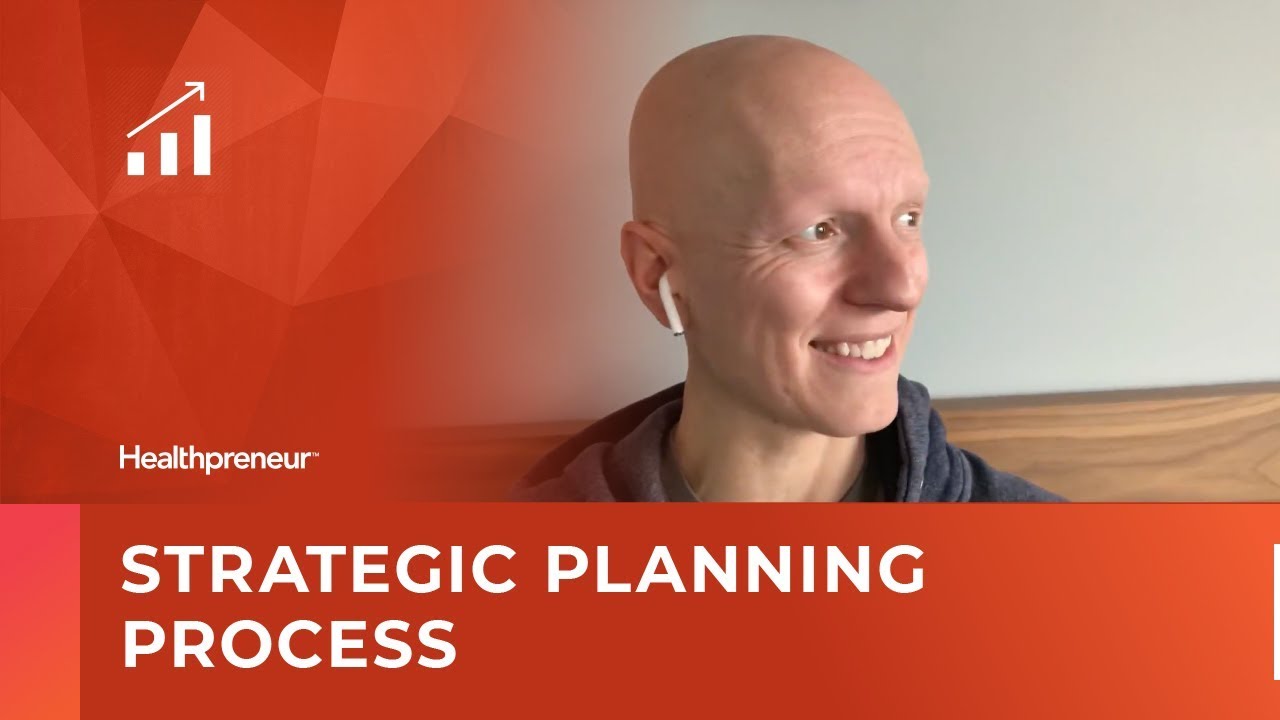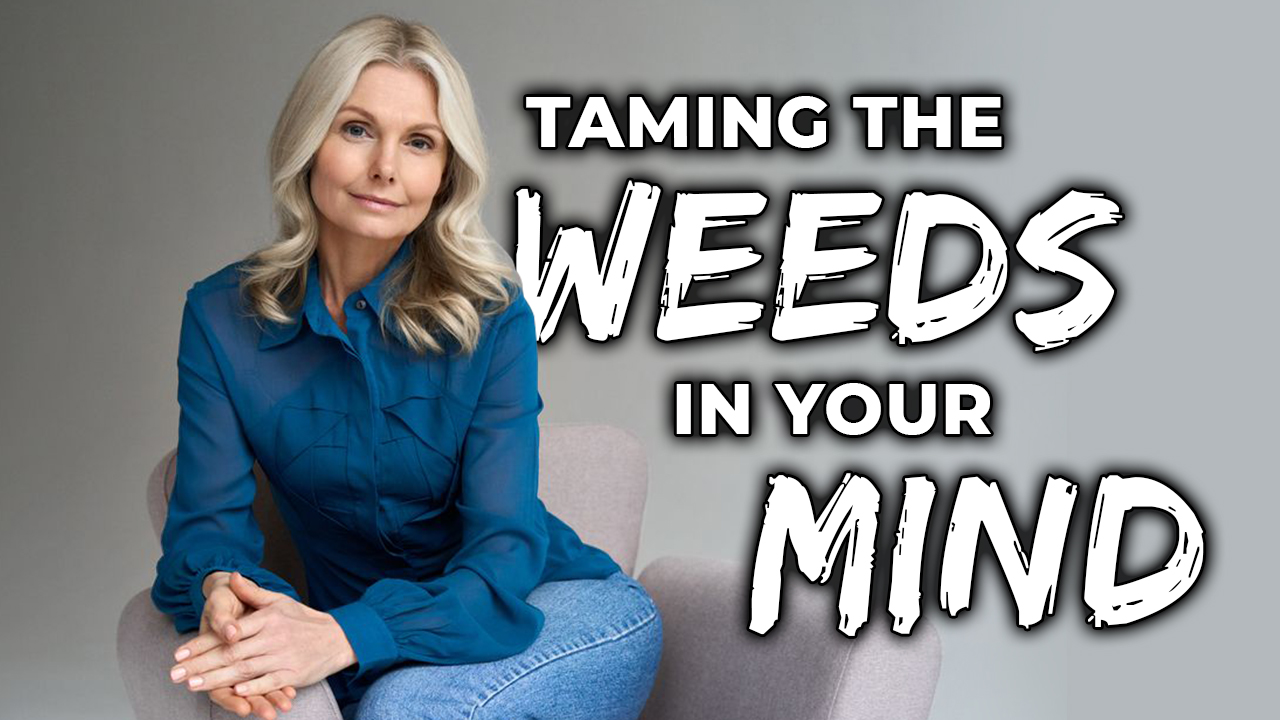How The Brand X Method is Building Formidable Humans with Matthew Hersh
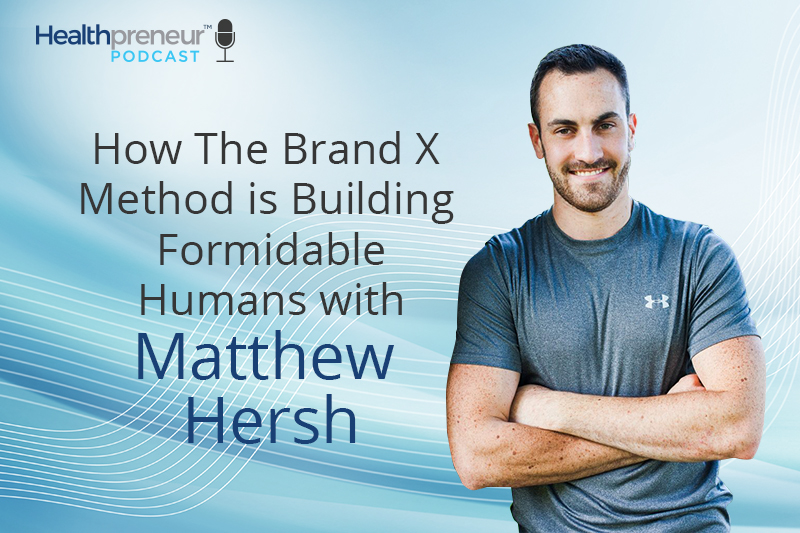
Have I got a treat for you today, Healthpreneurs! Welcome back to the show. Today Matthew Hersh, the co-owner and operator of The Brand X Method, is going to share both the business-building side of things and the journey to create a movement.
The Brand X Method builds formidable humans. They work with kids and teens to improve their strength and conditioning and, in turn, build their confidence, teach them fearlessness, and motivate them to push forward in whatever avenue they choose. What they do is so important for our future generations.
Matthew is a savvy businessman. He’s passionate about his work with The Brand X Method and knows the value of continued education through podcasts, conferences, coaching – and lots of reading – so he can make the biggest impact with the kids his company serves. Tune in for some actionable tips to take your business to the next level, reconnect with your mission, and use your uniqueness for good.
In This Episode Matthew and I discuss:
- His background and why he works with kids.
- How The Brand X Method builds formidable humans.
- The importance of experiment and play.
- Why their approach is balanced and healthy.
- Advice for entrepreneurs and the importance of continuing your growth.
02:30 – 06:30 – Matthew’s background, purpose, and mission
06:30 – 12:00 – The business model and why it works
12:00 – 16:30 – Advice for other entrepreneurs
16:30 – 19:30 – A formidable book list
19:30 – 23:00 – Knowing your niche and using your uniqueness for good
23:00 – 27:30 – The Rapid Five
Transcription
Hey guys, welcome back to the show, Yuri here. I’ve got a really cool interview for today. We’ve got a gentleman, his name is Matthew Hersh and he is the co-owner and operator of a really cool company called of The Brand X Method. And what they do is they build formidable humans. I mean, they specialize in introducing training and strength and conditioning to young people, so kids and teenagers. And it’s really cool to see what they’re doing as it applies to not only the business building side of things in terms of how they’ve been able to take this approach and bring it to market and really overcome any obstacles that have come up in terms of this is something that people are going to adopt or is this too early on.
So he’ll be sharing some of the stuff that they’ve gone through. But also I think it’s a really great example of creating a movement that can really spread beyond the initial location or the initial concept. So I think you’ll get some really cool nuggets out of this interview. I really enjoyed this conversation. So without any further ado, let’s bring Matthew Hersh on the podcast.
Hey Matt, how’s it going, welcome to The Healthpreneur Podcast.
Matthew Hersh: Yuri, thanks for having me.
Yuri Elkaim: Absolutely buddy. So I really like what you’re up to. You build or you work with a company called The Brand X Method and you guys build formidable humans. It’s so cool. Talk to us about what you guys are doing and why you’re so passionate about helping youth build a better version of themselves through exercise and movements.
Matthew’s background, purpose, and mission
Matthew Hersh: Sure. This is a great question, something I am deeply passionate about. So, to kind of take it from the beginning, I was a corporate strategy consultant and took some time off to figure out what I wanted to do with my life and try to find that area I really felt passionate about, that company, that group of people that I could resonate with. And for me, the first shot at that was this company called The Brand X Method, which I found online, shot out a cold e-mail and said, “Hey, I’d love to come work with you for a couple months.” And so I got out there and saw that it was this company that they called what they did strength and conditioning for kids and teens.
But getting there and really seeing what they did and working with them for months, we really kind of delved into it, realized there’s something bigger going on here. Having these kids get started moving really well from a young age and continuing to progress physically, it translated mentally, it translated into other facets of what they did in life. These kids were confident, fearless and had this freedom going about their worlds. And so, we kind of took this and was like, “You know what, there really is something bigger and it’s not just strength and conditioning. It’s really setting kids up with this platform, this development platform for them to go about their worlds and live to the fullest extent.”
So we took what we did and saw that what we’re doing, we’re not just getting kids faster, stronger, more resilient. We’re making them more formidable people who can then have a deeper impact on this world. So that’s where that statement was derived from.
Yuri Elkaim: That’s great man, I love that. I’ve got three boys, I’ve got three kids so I’m super passionate about doing whatever we can just as parents or as humans to better their future. And I think I totally agree with what you guys are doing. Because for me, movement and physical fitness was such a huge component of my life growing up. I played soccer forever. I don’t even remember going to school. Like it was road hockey and soccer and video games growing up. And I don’t think I would be where I am now without that introduction to movement at such an early age. Is that something that you experienced as well as a kid?
Matthew Hersh: Yeah. It’s something that I experienced and had a huge effect on me. I think I was lucky that I had a parent who encouraged me when I got home from school, to put the homework down for a bit and go play outside with my friends and throw dirt at each other and have those pickup football tackle games and really just experiment, explore. And that’s something that had a deep impact on me. And then moving forward into my life, when I got to high school then college and then the corporate world and this kind of desk-bound, I realized that most of this world is losing the element of moving properly as a human should and experimenting and playing throughout this world. And so it’s something that when I saw that Brand X was doing, this was something that I knew could have a pretty big impact on adding it back into people’s lives and wanted to do what I could do to help push that cause and get people really living their lives to the fullest.
Yuri Elkaim: I love it. That’s so good. Talking from a business perspective, can you give our listeners a sense of the business model? Like is it a physical training facility that people come into or how does all that look? How do you guys attract clients? And let’s kind of start there.
The business model and why it works
Matthew Hersh: Yeah, absolutely. So for us, it’s a three-part approach that all falls under the bucket of coach education. We’re really owning the coach education market as our target market but we do offer services to parents, athletes and coaches alike. So what it is, is number one, I said we have our online certification so our basic and advanced certifications in which anyone can use as an accessible way to really gain a foundation on how to teach kids to move properly. We do live certifications around the world so we’ll travel throughout the U.S., throughout the world and teach coaches, parents in a live setting and really get ’em moving, immersed in ways that they can improve their own movement and understand how to teach others to improve their own ways that they move and teach movement.
And then we have our training centers. So we have training centers across the country, across the world that really take pride in youth fitness as something that they offer and continue to work with us to institute best practices on how to build programs around youth development.
Yuri Elkaim: That’s awesome. And so what are some of the challenges or points of resistance you guys have come up against really growing this brand? In terms of like is there a good parent buy-in or is there a lot of education as to the need of this as compared to just getting someone involved in a local soccer team. What does all that look like?
Matthew Hersh: Yeah. Yuri, that’s a really good question. And I think one thing that we really like here is that the market, the industry, the world is on our side here in gaining this education of how important it is to get kids away from their phones, get kids off the couch and up and moving. The one piece that we find really difficult to educate against, if you will here, is the sport specialization. So we are finding that more and more kids are getting professionalized in their sport, playing baseball three or four season year-round and only preparing their bodies to that sport. And what that does is really causes these imbalances, it causes burnout, it causes injury.
And what we really like to teach is this general preparation; strength and conditioning and being able to build a physical foundation. Open up your physical capacity, build that bottom of the pyramid so that throughout the kids’ life they can go to any physical activity that they want to. And really gaining that, that core strength initially is just so powerful and we see it as ahead against injury and something that really transfers to any sport. So it’s really that education piece to parents that, “Hey, while there’s a place for sport specialization and practicing skills for a specific sport, strength and conditioning is not something that should be in addition. It should really be the foundation if you want to build the most formidable athlete.” And that’s a big piece that we really try to put content out there again and just provide awareness of the importance of that and where we’re headed as a society today.
Yuri Elkaim: So it’s great that you’re getting good buy-in from the parents ’cause that’s great. And when I look at … I’ve always been enamored by the Eastern Bloc and how they develop their youth. I dated a Russian girl for a number of years in university or in high school and she was born in Russia, moved to Canada when she was 13. But one of the most amazing things she was telling me was that, at least for her, when she was young, everyone was exposed to track and field, swimming and some calisthenics. So like body weight training and stuff like that. And that was like the foundation for all kids and I’m like, “Wow, it’s no wonder the Eastern Bloc has pumped out so many amazing athletes.”
Matthew Hersh: Yeah, makes sense.
Yuri Elkaim: In a number of different sports so it’s good to see that North America is catching on, at least with what you guys are doing which I think is really, really needed. And sadly, underrated, especially when you consider a lot of school systems taking away more physical education hours. So it’s great. In terms of like protocol, when you’re working with the kids for instance when they’re coming in and doing the work, are they coming in like once a week or is it like more of a full immersion type of approach or can they choose?
Matthew Hersh: So we see that consistency is a key metric to outcomes. It’s age-dependent so younger kids come in less but as they get older, we like the kids come in three, four times a week and really locking in these movement patterns, these motor patterns through consistent practice. And then on top, once we can see that kids have perfect mechanics, can demonstrate it consistently, only then do we add on intensity and really start to push the progression point. So we really do see consistency as a key metric to good outcomes.
Advice for other entrepreneurs
Yuri Elkaim: Nice, that’s awesome. If you’re giving advice to another entrepreneur or somebody in your role with a different company, knowing what you know now, what advice would you give them? Like what’s maybe a mistake that you made that you wish you would have known back in the day that that advice would help them avoid that same mistake and move them forward with a little bit less friction.
Matthew Hersh: Yeah. So I think for me the key piece which I’ve been really exploring as of late and trying to come to as clarified and understanding as possible is figuring out what I am really good at. Figuring out what motivates me, figuring out what I am passionate about and what I can most powerful offer to this world, and just really being able to continually clarify that. And then, once I have understanding of what that is, be able to articulate it. I think that that piece for me, really understanding who I serve, understanding what problem it is that they have, understanding what I am really good at, how I solve that problem and then being able to paint the picture of the mutual benefit, the mutual fulfillment, what the world looks like after, being able to tell that story, that’s just being a really invaluable piece for me. That not only from a piece to garner external interest, but to take that time to reflect on, “Okay, what is it that I really, really, at my core … Who am I and what do I do and what should I continue to do into the future?”
Yuri Elkaim: That’s great. So really kind of tapping into your own genius and doing more of that.
Matthew Hersh: Yeah, I think so. I think that I’ve seen people can overextend … People have a drive to help others. I do as well. But I found that really taking the time to focus in on personal growth and hiring coaches, getting out there and trying to really delve into the core of who is Matt, I think that enables me to help others more powerfully. So I would urge that piece to really figure out what drives you and what are you the best at in the world?
Yuri Elkaim: That’s great. Yeah, I totally agree with that. I’m a firm believer that all business growth starts with personal growth. So for you, what have been some modalities or mentors who have helped you grow as a person and then obviously translating that into business?
A formidable book list
Matthew Hersh: A great question and I think it’s a key piece of where I’m at today and where I’m going. Initially, it was what did I have at hand to mentor me? That was the internet, that was podcast, that was books. Reading Tim Ferris in college and then listening to NPR Podcast. That was the first step. Then once I was in corporate, I kind of still had this itch to learn, itch to develop and get closer to what it is that really I was passionate about. So I would take the time to go to conferences like Bulletproof Paleo f(x). These conferences where I could meet others who were like-minded, who were living a life that I admired and wanted to live.
And then once I was getting closer and closer to that role of, okay, I kind of know what I want to do. Now, how do I refine this and optimize it? I found working with coaches just being an invaluable piece for me. Whether it was health and fitness coaching, a big piece to really nail down that routine that fit with me. And then career development coaching, speaking coaching. I found out that reaching out and finding these people filled what I considered to be gaps in my own person, really enabled me to become more formidable in what I did and what I want to do and get closer to that ultimate career path.
Yuri Elkaim: Nice. So you mentioned Tim Ferris, what are one of the three books that have most impacted your life?
Matthew Hersh: Yeah. The first one was Ferris 4-Hour Workweek. I think reading that in college when I was an engineer, kind of boxed into that engineer role and not sure what I wanted to do with my life. Kind of feeling a little depressed that, ‘Did I make the wrong choice, should I have done something else?” Reading Tim Ferris and seeing oh, there’s a lot of paradigms to living a lot of ways to design your own lifestyle, that kind of opened up the world a bit to me. And then moving forward into the more entrepreneurial realm, Zero to One Peter Thiel, Start with Why, Simon Sinek. Those were both that really helped me to understand that there are ways to disproportionately reach an outcome. Things that, by focusing on a really, really important course stuff initially, can jump over a lot of growing pains and get you to that place quicker.
And then now that I’m kind of deep into business, the book that I’m reading and really enjoying is Deep Work by Cal Newport, which is kind of pulling me out of the running the business and reteaching me how to get deep and turn off the phone, turn off the e-mail when the real important stuff needs to happen. So yeah, I mean, I would say 4-Hour Workweek, Zero to One, Start with Why and then Deep Work right now. Those are four good ones that have had a real effect on myself.
Yuri Elkaim: Yeah, those are great books. I would vouch for that as well. I’ll also add one more. Kind of in conjunction with Deep Work would be the ONE Thing, which I can’t remember the name of the author but if you’ve not read that book, basically it’s about folks staying one thing. And I think that combined with Deep Work have a very similar message, especially when you’re in a role. ‘Cause a lot of people listen to this are creators. They’re creating programs or they’re creating outcomes for their clients. And a lot of times they get caught up … We all get caught up in busy work. Like the social media, destruction, notifications. And I really think that Deep Work is a great book for everyone to read.
‘Cause no matter what your role is, even if it’s around customer service, like we tell our customer service people, even if you’re in kind of a responsive type of … You’re not in a necessarily proactive role, there are things you can still do that would encompass Deep Work. And I think it’s important for everyone to really think of within their scope of practice, whatever it is they’re doing, there’s elements that they should all be contributing in some way, shape or form that is in their zone of genius with their Deep Work. And the more that we get done, the more impact we can have in our business and for the world. Yeah, totally read those are great books. Guys if you’re listening, well, obviously you are, check them out. They’re really, really good reads.
Knowing your niche and using your uniqueness for good
So with what you know now, if everything that you would ever have done was wiped away, what’s one message you would leave this world with?
Matthew Hersh: That is a big question.
Yuri Elkaim: Yeah, no small questions here.
Matthew Hersh: One message to leave the world with.
Yuri Elkaim: I guess like what do you want to be remembered for? Like the legacy type of takeaway of Matt Hersh.
Matthew Hersh: So this is something I’ve recently come to pretty good terms with and it’s that I think given every human’s unique makeup, I think just one piece is genetic. Given every human’s biological, physiological makeup, they’re unique. And then I think on the opposite side, I think everyone has unique experiences, just had a unique upbringing. And for that reason, I truly believe, and this is something I’ve worked with one of my mentors with on and really delved deep with, is that every person has something, some piece, some niche that they are the best at in this world, that they can help others more powerfully than anybody else.
So I think the continual process of trying to derive what is that one thing, what is that most powerful way that my human can help this world, help myself? I think that that’s a piece that will be timeless and something that will just leave greater impact on this world and lead to a healthy future of individual legacy and collective fulfillment.
Yuri Elkaim: I love it, it’s good. That’s awesome. What do you think is one skill entrepreneurs must posses for lasting success?
Matthew Hersh: I’ll talk about one that I have recently have become aware of the importance of and working on developing is the human element, the humanistic element. So I kind of come into my startup career as I would now call a technician. I understood corporate strategy and kind of naturally had an idea of how to create business plans and could look at a business problem and point to a good route forward. But now I’m kind of realizing the importance of layering on or even starting with the resources available that the people that you’re working with. Trying to understand what motivates them, how do they think, how do they learn? I have this great business idea but if I can’t communicate it to my teammates in a way that would really resonate with them and get them excited about moving forward with it in a way that they think serves them and serves the company as a whole, then it’s just a business plan at that point. So I think it’s really delving into how can I get better at communicating and working with the specific individuals that I work with on a daily basis?
The Rapid Five
Yuri Elkaim: That’s great. I love it. So this has been really good Matt, thank you for sharing everything you’ve shared. Before we finish off, I do have the rapid five. Are you ready for the five rapid fire questions?
Matthew Hersh: Let’s do it.
Yuri Elkaim: All right man, let’s do it. Okay. So whatever comes top of mind is probably the right answer. So number one, what is your biggest weakness?
Matthew Hersh: Planning to the point of not doing.
Yuri Elkaim: That’s good, I like that. Number two, what is your biggest strength?
Matthew Hersh: I think my biggest strength and my biggest weakness are pretty closely aligned. I’d say planning in the context of taking a lot of diversion inputs and working them into a plan that converges into a singular mission.
Yuri Elkaim: Nice. Number three, what’s one skill you’ve become dangerously good at in order to grow your business?
Matthew Hersh: Seeing relationships and working towards relationships of mutual benefit and structuring them in a way that expectations are upfront and the value each party is receiving is understood. So really, building those mutually beneficial relationships and structures.
Yuri Elkaim: Number four, what do you do first thing in the morning?
Matthew Hersh: First thing in the morning, I wake up after two alarms. If it’s cold out, I’ll have my infrared light turn on before I wake up and then I’ll go make warm water with lemon and salt and a coffee and start my morning journaling.
Yuri Elkaim: Nice. It’s so funny how almost everyone we’ve had on the show says something very similar. Lemon water, salt, all that good stuff. ‘Cause we know, we’re in the know, which is great. Out of curiosity, why two alarms? Is there like the snooze button and the second alarm or is it two different alarm clocks around the room or the house?
Matthew Hersh: Yeah, I like to have one go off, snooze it, take some time to … In that half asleep thinking state, half conscious state … And then I really think that helps me come out of sleep and have some interest and creative thoughts to get me ready for the day.
Yuri Elkaim: Cool. Nice. And finally, complete this sentence. I know I’m being successful when …
Matthew Hersh: When I am in a position where I’m able to use what I would consider to be my exceptional ability, push to continue to grow and work with people that continue to inspire me. And I think another big piece is living a lifestyle that aligns with health and my values.
Yuri Elkaim: That’s great, I love it. Awesome. Matt, thanks so much for taking the time and then being with us on the podcast. Before we finish off, what is the best place for our listeners to follow you online, stay up to date with what you guys are working on or anything else?
Matthew Hersh: Yeah. Personally, I’m relatively active on Instagram @matthewjhersh H-E-R-S-H. And then I’ll say follow The Brand X Method. I think we’re launching our new education in 2019 and we’re really positioned to be the leaders in professionalizing our youth coach and really taking ahold of making our next generation healthier. So I would love for people to reach out if you’re interested. Even though we’re growing, we do want to keep the element of personality, of being able to talk to people that are interested. So follow us on Instagram, direct message us, e-mail info@thebrandxmethod, [email protected]. Yeah, I would love to speak with anyone who’s interested.
Yuri Elkaim: Awesome. That’s great. Matt, thanks so much of everything you guys are doing with The Brand X Method. It’s already making a big difference and I’m sure it’ll continue to do so in an even bigger way over the coming years. So thank you so much for all the great work that you’re doing and thanks again for joining us on the show today.
Matthew Hersh: Thank Yuri. This was great.
Wrap up with Yuri
All right, so I hope you enjoyed that one. And if you did, that’s great. In the meantime, remember to subscribe to The Healthpreneur Podcast on iTunes. While you’re there, leave us a five star rating or review if you feel that is a good fit for what you’ve been enjoying so far. And remember, that we have more great interviews coming your way, lots of great stuff heading into 2019 and beyond. Lots of great solo rounds, build your mindset, give you some winning strategies. We’ve got some really great strategies coming your way over the next couple of weeks and months and you want to make sure that you’re tuned in for all that. So thank you once again for joining me today, you rock. Continue to get out there to be great, do great and I’ll see you in our next episode.
Follow Matthew Hersh at:
If you enjoyed this episode, head on over to iTunes and subscribe to Healthpreneur™ Podcast if you haven’t done so already.
While you’re there, leave a rating and review. It really helps us out to reach more people because that is what we’re here to do.
What You Missed
In our last episode I was with our famous Results Coaches; Jackie, Amy, and Stephanie, where we discussed a big topic that comes up a lot: Worry.
We all know what it feels like. It can be paralyzing, stressful, and lead us to make short-sighted, fear-based decisions.
Can you relate?
Tune in and take some notes as we talk about how you can move worry out of the picture with some simple tips from our coaches who work intimately with our clients.
They’ll reveal how to crowd-out worry and replace it with action, eagerness, and a reality you want.
Related posts
April 2, 2022
Tending To Your Mind | Motivation For Healthcare Workers
Thoughts become things, so how…


